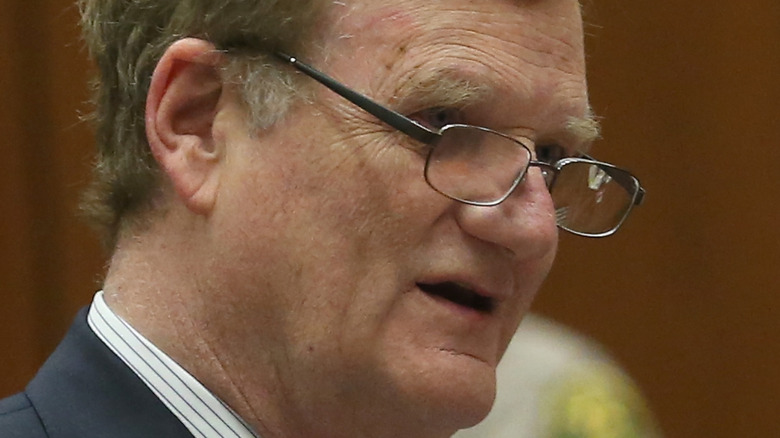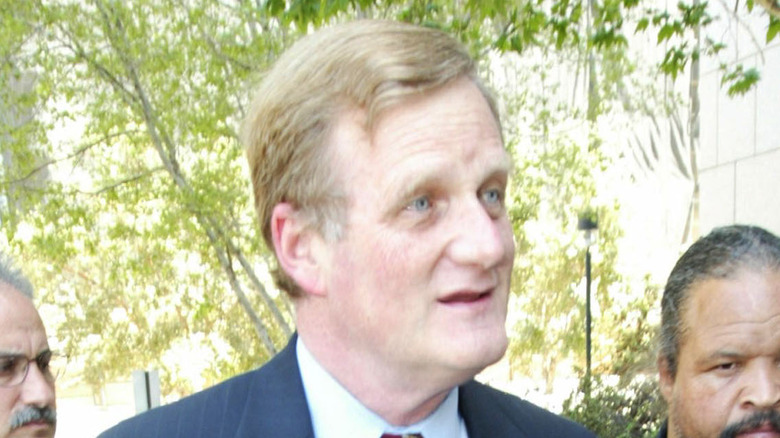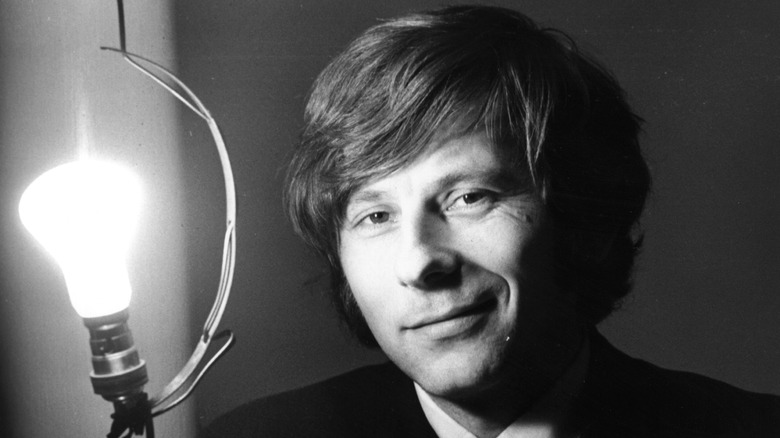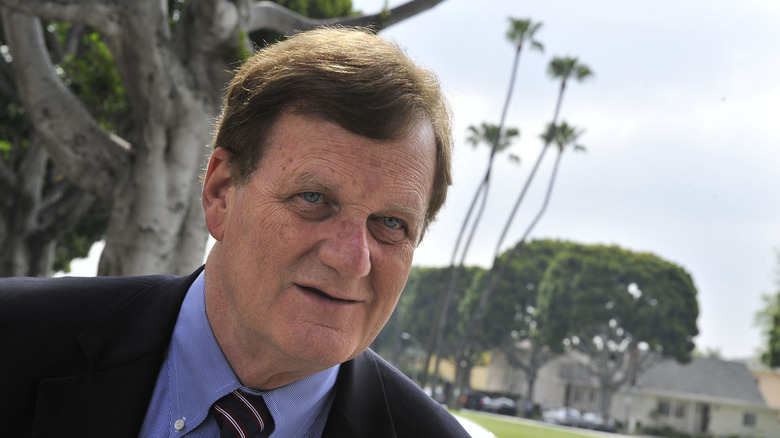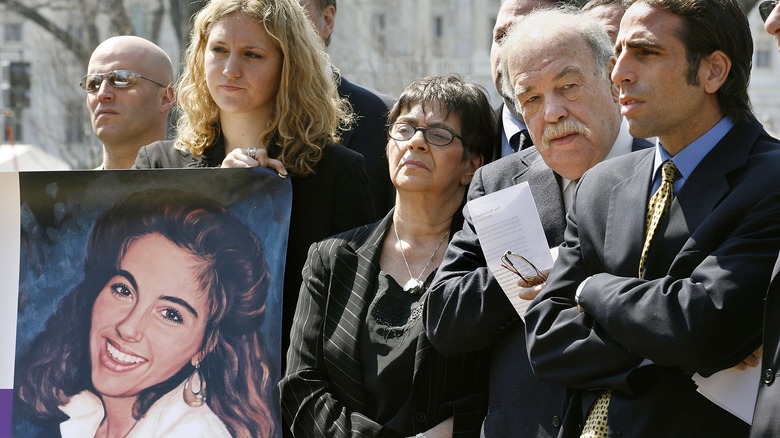Whatever Happened To Harland Braun From The Roman Polanski Case?
For over 40 years, the criminal case involving director Roman Polanski has cast a dark shadow over his career and his legacy, as well as over the film industry more broadly. His career accomplishments cannot be understated: he's directed some of the most critically-acclaimed films of his era, including "Chinatown" and "Rosemary's Baby" (per IMDb), and he's won an Academy Award for Best Director, for 2002's "The Pianist." However, his artistic accomplishments are juxtaposed with the fact that, in 1977, he sexually assaulted an underage girl, according to Rolling Stone. Polanski pleaded guilty to unlawful sexual intercourse with a minor and was sentenced to 90 days evaluation at a California prison. The evaluation was completed in 42 days and Polanski fled to Europe. He has effectively been a fugitive from United States justice ever since.
Polanski was represented by Harland Braun, a high-powered attorney whose career includes multiple criminal trials involving celebrities, according to CNN. His clients have included Roseanne Barr, Dennis Rodman, "and a host of others he won't talk about," as CNN describes it. As of July 2022, Braun is still practicing law, according to his law firm's website.
Braun's pre-Polanski career
Long before he was retained by Polanski, Harland Braun was already making a name for himself as a defender of high-profile clients. According to a biography on his law firm's website, he did his undergraduate studies at UCLA, completed law school at the same institution, then went to work in the public sector. In his role as a Los Angeles Deputy District Attorney, he prosecuted five members of the Manson Family. His skill in the courtroom prompted fellow prosecutor Vincent Bugliosi, who wrote the book "Helter Skelter" about the Manson family murders, to note, "with your trial abilities, if you had represented Manson, this book may never have been written."
After a few years in the public sector, Braun went to work in private practice, and continued his trend of being involved in high-profile cases. By 1973, the California Board of Legal Specialization had bestowed upon him the title of criminal specialist, the first person to be given that designation.
The Polanski case
When Polanski completed his evaluation early, prison officials recommended probation. However, a few months later, it became apparent that the judge in the case was keen to put the director back behind bars, and he fled to Europe. The criminal case is still active as of July 2022.
As recently as 2017, as KABC reported at the time, Harland Braun was representing Polanski, in this particular instance trying to get some sort of indication from the court as to what would happen to his client should he return to California, noting that Polanski wanted to have the case resolved.
Braun also represented Polanski not in a courtroom, but in a boardroom (in a manner of speaking), by advocating for his client's reinstatement to the Academy of Motion Picture Arts and Sciences after that group expelled Polanski without giving him a hearing. "It reflects very poorly on the academy that they would do this," Braun said (via USA Today) in 2018.
Braun's methodology
Throughout his decades-long career, Braun has developed a methodology when it comes to representing celebrities and other individuals with high public profiles. His strategy largely relies on damage-control, according to CNN, aiming for a plea bargain and getting his client back into a normal life as soon as possible. For example, the case against actor Lane Garrison, whom Braun represented, was adjudicated. Braun remarked about the importance of getting cases settled quickly. "He's out [of prison] and he's working," Braun said of his client, who copped to vehicular manslaughter and did a few years in prison.
Braun has also developed a reputation for saying exactly what's on his mind, without the application of a filter. For example, when he met Chris Farley, Braun told the comic actor, "You remind me of John Belushi and John Candy, and they're both dead." Similarly, when he represented actor Robert Blake, accused of murdering his wife, Braun characterized Ms. Backley in a way that led some critics to accuse him of victim-bashing. Braun made no apologies. "It had to be done," he said.
The Barber Right-to-Die Case
For a time in the late 1990s though the middle 2000s, the case of Terri Schiavo (pictured above) played out in the courts and in the court of public opinion. The Florida woman had been in a persistent vegitative state for years, and her husband wanted to have her feeding tube removed, while her family fought bitterly against this decision. The case served as a microcosm of the legal issues surrounding the right to die, as Baylor University explains. However, two decades before the Schiavo case, Braun represented doctors accused of murder in another right-to-die case, according to his biography on his law firm's website.
As CaseBriefs explains, two physicians discontinued the treatment of a comatose patient, who had little to no chance of recovery, at the request of the patient's family, and they were subsequently charged with murder. However, they were ultimately acquitted, as the court ruled that the physicians' actions did not constitute a murder.
Other High-Profile Cases
A list of the legal cases handled by Braun, provided via his law firm's website, includes both celebrity cases and other cases with a high public profile. In terms of celebrities, in addition to Polanski, he's also represented Steven Seagal, Gary Busey, Harry Morgan, and multiple others in matters both high-profile and "discreet," as he describes them.
Other cases in which Braun has been involved include names you may not be immediately familiar with, but the circumstances may ring a bell. For example, in addition to representing the physicians in the Barber case, he also represented director John Landis and Producer George Folsey in the manslaughter trial stemming from an accident on the set of the film "The Twilight Zone," as well as LAPD Officer Theodore Briseno in his federal trial stemming from the videotaped beating of motorist Rodney King. He's also represented at least two politicians in criminal trials.
